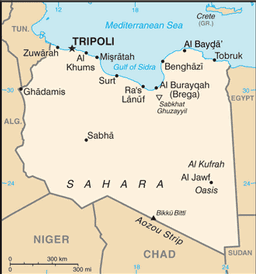As is widely recognized at this point, the ragtag rebel groups the US and NATO placed their bets on to be the next rulers of Libya are facing enormous challenges after ousting Muammar Gadhafi. Considering their organization and capabilities, they may be out of their league.
Tripoli is essentially lawless at current, with sporadic gun fights still breaking out, dead bodies strewn about the streets, no water or electricity. The rebels were able to fight in gun battles, but providing services and stability seem to surpass their abilities.
Libya’s tribal society is exemplified by the rebel groups who fought to remove Gadhafi, and their divisions run deep at a time when unity and strict obedience to the leadership is needed to satisfy Western powers and stabilize the country. But they are not a cohesive assemblage. The rebel council consists of former government ministers who have defected, and longstanding opposition figures, representing a range of political views, and their military forces are a hodge-podge of armed groups, former soldiers and freelance militias.
Political tasks, like a significant refugee problem and a looming division of the country between eastern and western tribes, are also complicating an easy transition.
The murder of rebel military commander Abdel Fattah Younis was an example of those divisions. But more than division, the rebels have accumulated a record of extrajudicial executions, suppression of free speech, beatings, and thievery, and have reportedly continued such practices into the post-Gadhafi era.
The US and NATO are concerned that the disparate nature of the rebel groups could lead to the discovery and subsequent black-market sale of Gadhafi’s weapons stockpiles. The general lack of confidence in their proxies has led various Western leaders to consider expanding on the ground troop presence in the country.
With oil and gas representing about 70 percent of the Libyan economy, rebels are welcoming international corporations back into the country in an attempt to get the funding to secure their rule. At the same time, Obama is working hard at unfreezing billions of dollars of Libyan assets for the rebels.
But none of the plans will go smoothly, for the rebels or the Western powers, if the power vacuum now apparent in the country leads to a descent into bloody chaos, as happened in postwar Iraq. Unfortunately, such chaos seems likely at this point.


